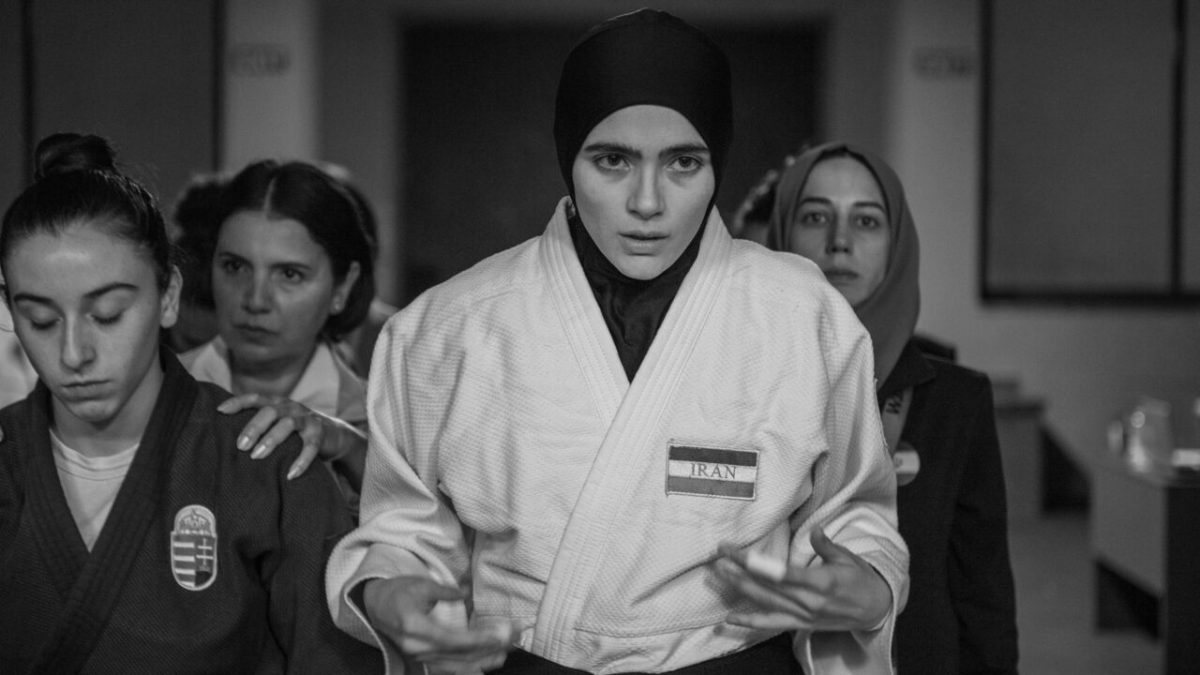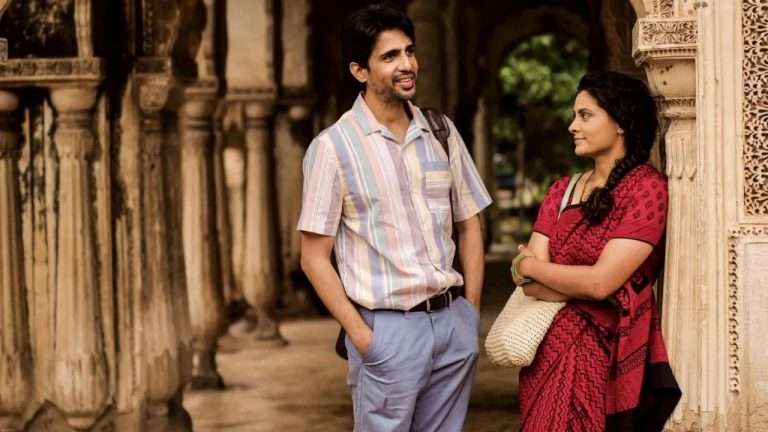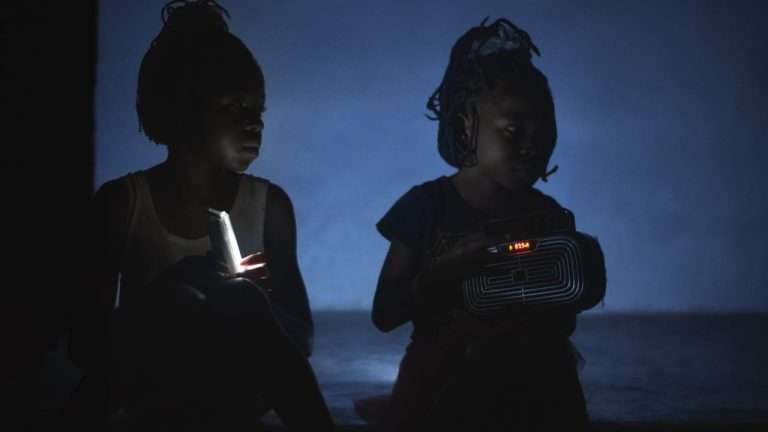Directed by Guy Nattiv and Zar Amir Ebrahimi, “Tatami” distils into focus a tough reckoning. Individuals grapple with the right course of action, stifled within oppressive systems. Resistance bears with it a crushing cost. Risking everything, who dares to break out of the circle? Complicity as well as dissidence bring forth a storm of emotional ambivalence. What is one left with when systems seek to retract one’s existence and rights? Can resistance in Iran come only with a loss of homeland? It becomes a dire question of survival. Stakes are high.
Iranian contestant Leila (Arienne Mandi) arrives with her coach Maryam (Amir Ebrahimi) at the World Judo Championship in Georgia. Except for Maryam and her family and loved ones, it seems the Iranian Association doesn’t have much hope in her proceeding to later rounds. Maryam was once a formidable fighter herself, who quit after an injury and reverted to being a coach. But was that what really happened? The film reveals its tragic underpinnings gradually, the matrix of coercion that citizens of Iran have to accept as the mandate.
“Tatami” sweeps through ramifications, bursting around the critical choice—to comply or defy. Problems arise when Leila’s capability to get to the finals reveals itself as very likely. The Association makes absurd demands riven with ugly politics. Initially, Maryam dismisses the Iranian Association’s order for Leila’s withdrawal. There’s a possibility that at the finals, Leila would have to go up against an Israeli competitor. That’s not what the Iranian regime can permit. Leila has to retreat before she faces off a “Zionist occupier”. Insistence claws itself deeper as Leila triumphs through several matches, and the possible face-off draws near. The onus of Leila’s withdrawal is equally piled on her coach. Maryam is warned of the danger her parents face if she’s unable to ensure what Iran’s Supreme Leader wants. She tries to convince Leila and stop her, only to be met with stubborn refusal.

Leila is adamant about her stance. She won’t buckle under pressure, cave into such demands. As clear she is about not succumbing, with her husband backing her up, the consequences start rippling in immediately. Back home, officials tail her husband, who takes their son with him and sets out to cross the border. This fearless film has no qualm about its position, refracted through the perspectives of two women, one who’s going through a punishing dilemma, the other already having experienced it years ago.
At no point does the film take a severe look at the women’s helplessness, questioning their decisions as misjudged. They are victims of a regime that dictates the entire trajectory of their lives, taking away individual choice whenever it wants. Threats of consequence are forbidding. Families get targeted and jailed. The ability to live in one’s homeland itself is wrenched away. What’s the price of sticking to one’s conscience? Is it worth being put at stake, having every security, lifelong community, land one loves, being pulled away? But while staying on a carpet of lies, internalised manipulation, is it even a life where freedom is purely conditional? To obey the regime is to push oneself towards a permanent stranglehold of compromises.
Shot in monochrome, the film burrows deep into haunted psyches, burdened by the weight of having to commit and stand by a ruthless decision. “Tatami” switches between the matches and the mounting politically loaded situation. It’s intense, excoriating, and riddled with gut-wrenching admissions and confrontations. One woman’s refusal becomes the catalyst for another’s defiance. The shackles are hurled off. There can be no more hiding, the pretense of inhabiting a lie as lived reality. There’s a tipping point for everything. The coach gathers strength from her protégé to rebel to do what she should have done long ago.
Ebrahimi never lets your attention waver as someone who struggles to find a ground, caught between the safer option and what’s morally abiding. If the younger can lash out in her stance, why can’t she derive that fortitude? “Tatami” is a trenchant critique of the mental isolation exerted from positions that contradict the regime. It does a great job of heightening the moments of unforgiving doldrums surrounding the central decision. Everything seems to close in on Leila and Maryam, but the women eke out a counter path. The radical courage of this film makes it a vital viewing. Its uncompromising anger is something one must cherish.




![Asuran [2019] Review – A Viscerally Intense Drama on Caste Discrimination](https://79468c92.delivery.rocketcdn.me/wp-content/uploads/2019/10/Asuran-2019-768x427.jpg)


![Jigsaw [2017]: Unnecessary. Unwanted. Unwarranted.](https://79468c92.delivery.rocketcdn.me/wp-content/uploads/2018/04/jigsaw-screenshot-1-768x326.png)
